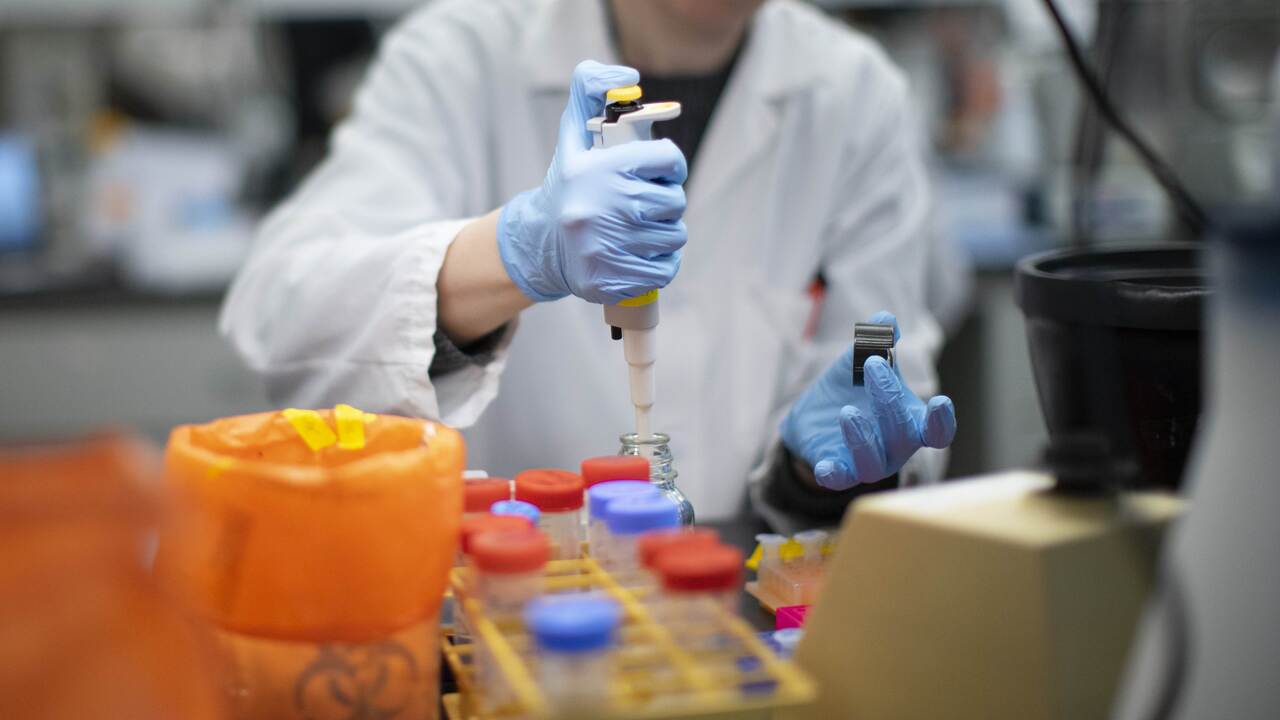SCIENTISTS STEP UP THE SEARCH FOR ANSWERS
Coronavirus: US, Chinese researchers team up in search for virus' origins
Sign up now: Get ST's newsletters delivered to your inbox

A researcher works in a lab that is developing testing for the coronavirus, on Feb 28, 2020, in New Jersey.
PHOTO: AFP
WASHINGTON/BEIJING • US scientists are working with China to investigate the origin of the coronavirus, despite criticism from the Trump administration that Beijing is failing to cooperate with outsiders to stem the disease.
Professor Ian Lipkin, director of the Centre for Infection and Immunity at the Mailman School of Public Health at Columbia University, said he was working with a team of Chinese researchers to determine whether the coronavirus emerged in other parts of China before it was first discovered in Wuhan in December. The effort relies on help from the Chinese Centres for Disease Control and Prevention (CDC).
"The China CDC is interested in learning as much as it can about the origins (of) these types of viruses," Prof Lipkin, a virologist who worked on the 2003 Sars and 2012 Mers coronavirus outbreaks, told the Financial Times. "We share whatever we learn with the entire scientific community."
Prof Lipkin, who has had longstanding ties with Chinese officials since he helped develop rapid testing for Sars in 2003, visited China earlier this year to discuss responses to Covid-19, the disease caused by the coronavirus. He met Premier Li Keqiang, and received an award, his second from China.
Prof Lipkin's research partner in China, Professor Lu Jiahai of the Public Health School of Sun Yat-sen University in Guangzhou, told FT that the China CDC helped him liaise with hospitals and CDCs across the country. This was to access blood bank samples from pneumonia patients to study whether the virus was present in the population before it was detected in Wuhan.
"We are working across regions and departments to trace the origin of the virus," he said, adding the study began in February and might produce results later this year.
Prof Lu said the problem with existing research was that it depended overwhelmingly on cases reported by hospitals, but some people might have been infected and later developed antibodies before anyone was aware of the disease.
"A critical part of our work, which we conducted with the help of Chinese CDC, is to test blood samples of pneumonia patients nationwide in December, November or even earlier," he said. He added it was "very important" to study earlier infection cases, given signs that 30 per cent to 50 per cent of virus carriers do not show symptoms.
China and the US have lobbed accusations at each other over the origin of the disease, which the World Health Organisation (WHO) says most likely emerged from bats via an intermediary animal in the last quarter of 2019. US officials have criticised China for what they say is a cover-up of the early outbreak and failure to share information.
Only three of 12 WHO officials who visited China in February were allowed to visit Wuhan, and their final report said "the timely filling" of knowledge gaps including the source of infection was "imperative to enhance control strategies".
"As the animal origin of the Covid-19 virus is unknown at present, the risk of reintroduction into previously infected areas must be constantly considered," it said.
The Chinese authorities censored early warnings from the medical community. One Wuhan doctor who drew attention to the disease and later died from it was hailed as a national hero after police forced him to retract his statement.
The US-China research team is also studying blood samples of wild animals, said Prof Lu. "We want to understand how animal-to-human transmission happened," he said, adding that Prof Lipkin was a leading expert in identifying and diagnosing unknown viruses.
Prof Lipkin was part of a team that published a paper in Nature Medicine in March which said the illegally imported Malayan pangolins carried a virus similar to the one that causes Covid-19, but that neither the pangolin nor the bat was the likely "direct progenitor" of the virus. "Obtaining related viral sequences from animal sources would be the most definitive way of revealing viral origins," it said.
FINANCIAL TIMES


